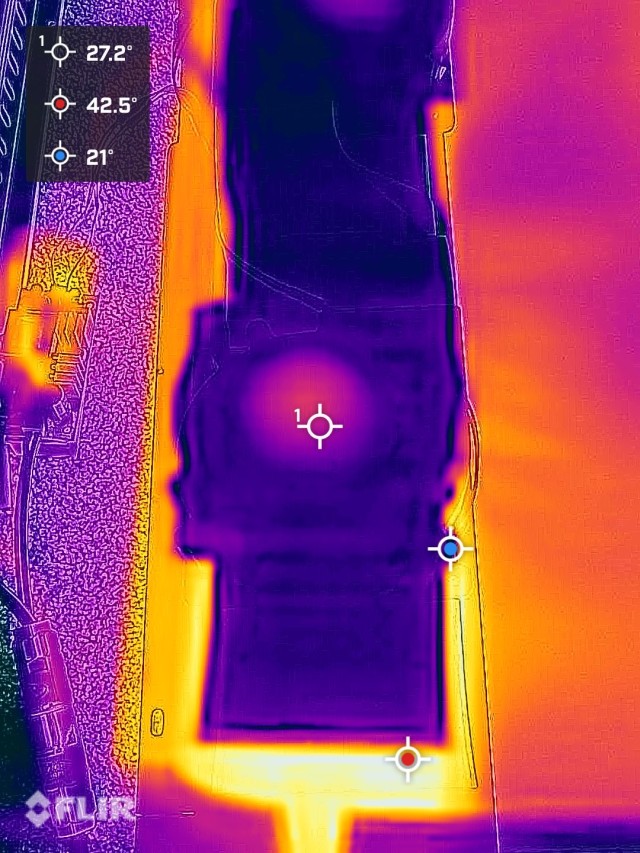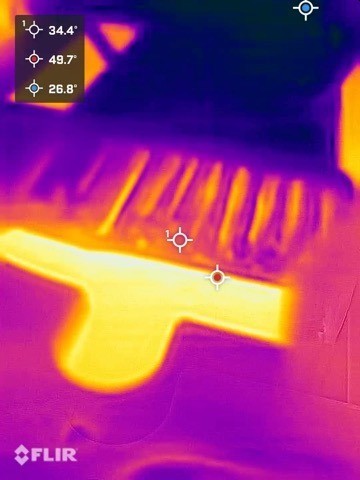

Advanced Cooling for AI: Thermogenix GPU Cooler
Discover the cutting-edge GPU cooling device engineered to elevate your AI training & inference.
Contact us for a Presentation
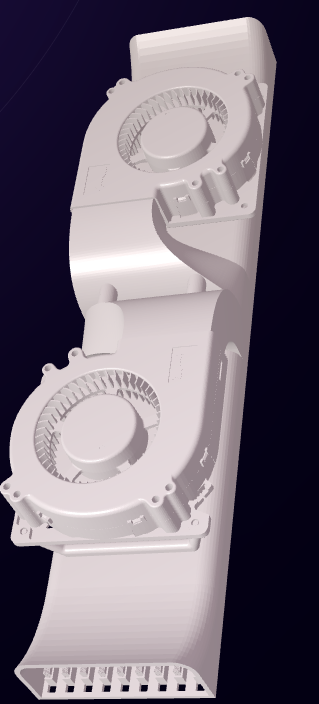
Key Features
Designed specifically for GPUs, this compact device leverages advanced technology to maintain optimal temperatures without impacting the ambient room temperature.
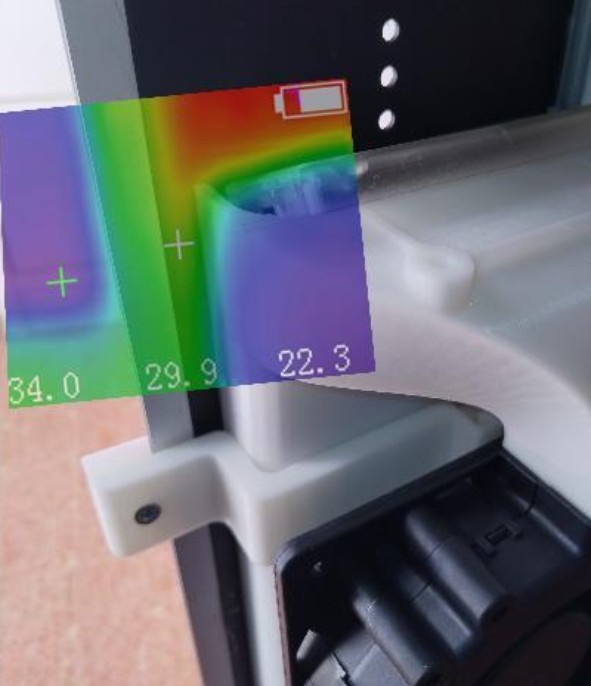
Crystalline Heat Dissipation
Our cooling device uses a unique crystalline structure to trap and dissipate heat in the form of electrons, efficiently moving away from the heated GPU surface.
Air pressure Differential Air System
The integrated air handling system employs air pressure differentials to ensure high operational efficiency.
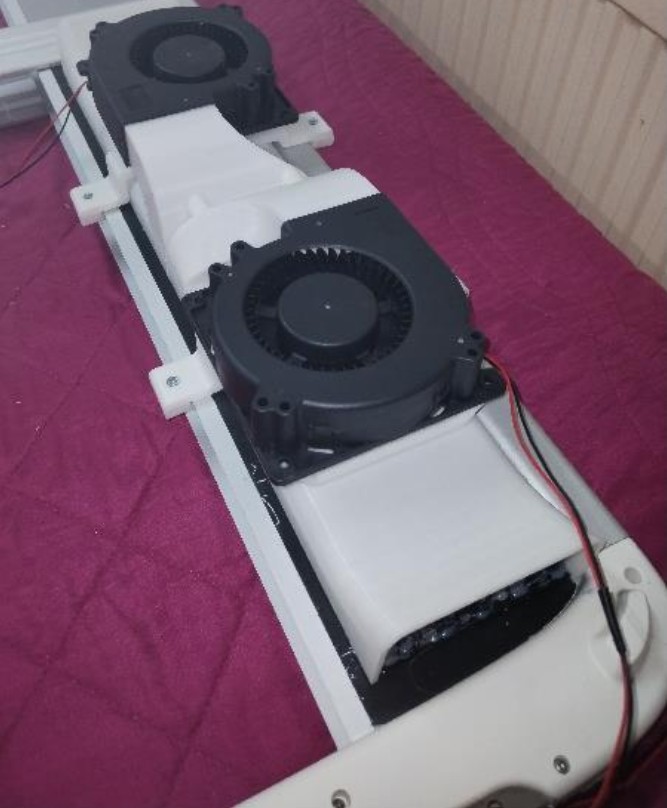
Ambient Temperature Stability
By effectively removing heat from the environment, our cooler ensures that the ambient temperature in your room remains stable, even during intensive AI training sessions.
Compact Design
Sized similarly to traditional GPU coolers, our device offers a sleek and efficient solution for advanced cooling needs.
GPU cooling
Discover the groundbreaking technology behind our advanced GPU cooling solution, designed to optimize thermal management for high-performance computing.





Indoor Grow Lights
Heat generation and electricity costs are two of the primary challenges of indoor cultivation. By utilizing our cooling solution, both the grow environment and energy consumption are optimized.





Desktop GPUs
With further R&D efforts, replacement cooling solutions can be developed for commercially-available desktop GPU cards.




How it Works
Introduction
Quantum GPU Cooling introduces a revolutionary approach to managing thermal energy in high-performance computing environments, specifically tailored for GPUs used in AI training. This technology leverages advanced principles of thermodynamics and entropy to achieve efficient heat dissipation without increasing the ambient temperature of the surrounding environment.
Crystalline Heat Dissipation
At the core of Quantum GPU Cooling’s technology is a unique crystalline structure. When thermal energy is generated by the GPU, it induces vibrations in the crystal lattice of the substrate. These vibrations provide sufficient energy to release electrons from the negative side of the semiconductor substrate, which has a loosely tied electron in certain atoms of the crystal. On the positive side, atoms have one fewer electron in their outer shell, creating positive quasiparticles or “holes.” As electrons are freed on the negative side and move toward the positive side, this movement generates a potential difference or voltage. This potential difference allows current to flow through a circuit. A fan integrated into the cooling device uses this energy to create a temperature gradient, enhancing the cooling process.
Entropy and Thermoelectric Efficiency
The principles of thermodynamics play a critical role in the efficiency of this cooling technology. Entropy production is a significant factor in thermoelectric devices, as it involves irreversible processes where energy is lost in the form of heat. By optimizing the crystalline structure and the flow of electrons, Quantum GPU Cooling minimizes entropy production, thereby increasing the efficiency of heat dissipation. The concept is akin to the principles detailed in the works of Seifert et al., which explore the relationship between entropy production and the efficiency of thermoelectric devices. By managing the entropy production effectively, the cooling device achieves a higher efficiency, approaching the theoretical limits of the Carnot cycle.
Supporting Research
Research in the field of thermoelectric devices provides a solid foundation for understanding and justifying the advanced cooling mechanisms employed by Quantum GPU Cooling. For instance, studies have shown that optimizing the local entropy production can significantly enhance the performance of thermoelectric devices (Seifert et al., 2011). Additionally, the concept of using crystalline structures to manage heat dissipation aligns with the findings of several thermodynamic analyses, which highlight the importance of material properties and structural optimization in improving thermoelectric efficiency (Science China Technological Sciences, 2009; Springer, 2020).
Practical Applications and Benefits
By implementing this advanced cooling technology, Quantum GPU Cooling offers several key benefits:
Enhanced GPU Performance: Maintains optimal operating temperatures for GPUs, ensuring consistent and reliable performance during intensive AI training sessions. Energy Efficiency: Utilizes the heat generated by the GPU to power the cooling fans, reducing overall energy consumption. Stable Ambient Temperature: Prevents the increase of ambient temperature in the room, providing a more comfortable and controlled environment for high-performance computing systems.
Conclusion
Quantum GPU Cooling represents a significant advancement in the field of thermal management for high-performance computing. By leveraging cutting-edge thermodynamic principles and innovative crystalline structures, this technology provides an efficient and effective solution for managing heat dissipation in GPUs, ultimately enhancing performance and energy efficiency.
For further reading and a deeper understanding of the principles discussed, you can refer to the following sources:
Entropy - Thermodynamics of Thermoelectric Phenomena and Applications
Thermodynamic analyses and optimization for thermoelectric devices
Thermoelectricity and entropy flow (Oxford Academic)
These sources provide comprehensive insights into the thermodynamic principles and entropy management that underpin the innovative cooling technology of Quantum GPU Cooling.



Contact Us
Have questions or need a demo? Reach out today to explore how Quantum GPU Cooling can transform your AI training experience.

